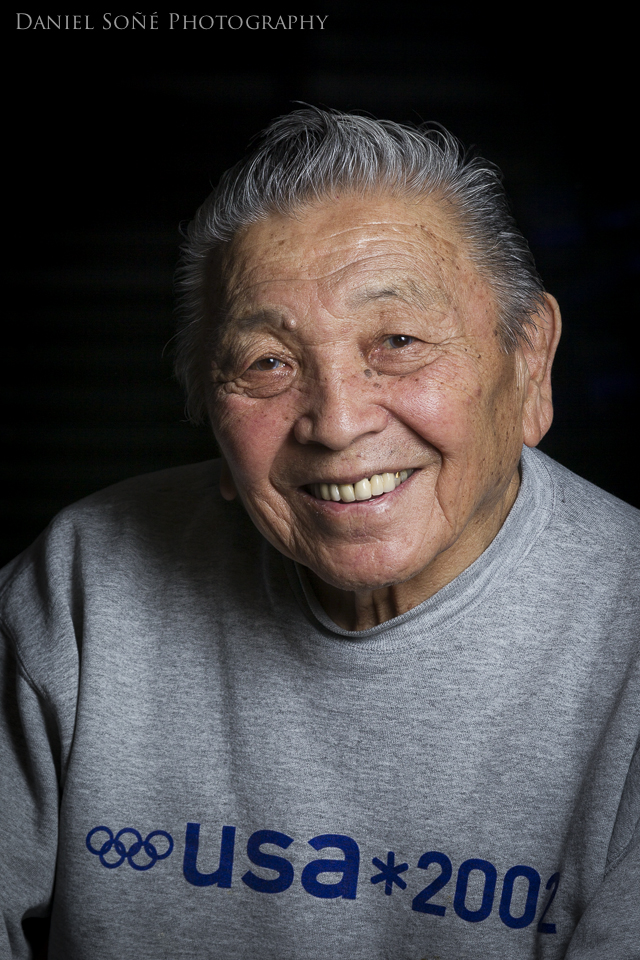
One of the few Judo kudans in the United States turned the auspicious age of 88 on February 3rd. He’s pretty much what you’d expect from such a judo master: a lined face, sharp eyes, a sage’s breadth of Judo, and tremendous respect from his fellow judoka. His small stature belies the drop-what-you’re-doing-and-listen respect he’s earned and his fiery spirit. It also hides a lifetime of hard work and education he’s imparted upon his pupils.
James Takemori began judo under a Buddhist reverend at the tender age of 11 in California. But his attitude of hard work and family was being fostered years before he bowed-in. He lived through the Great Depression and painfully witnessed his father scrounge up the survival of their family through it.
“My father worked for 15 cents an hour with six children. I wondered how he ever made ends meet. It hurt me because I still wanted to take care of my own parents,” he remembered.
His sense of duty to his parents was not only instilled in him by his parents, but it is a tradition of Japanese culture, Takemori says, “In a Japanese family, the oldest son is supposed to take care of their parents.”
Living and witnessing the struggles of being a farming family during the Great Depression wasn’t the only hardship he had to endure in his youth. Despite being a natural-born U.S. citizen, he and his parents were transported and detained at one of the many Internment Camps shortly after the attack on Pearl Harbor. Japanese citizens who had nothing to do with the attack nor had allegiance to the Japanese Empire were imprisoned, essentially for simply being Japanese. Takemori and his family were one of the last groups detained. He went to the camp in Gila, Arizona.
Despite being a prisoner in his own country, Takemori was drafted into the Army a year later, in 1944. He quickly moved up in the Army, becoming a “buck sergeant” before shipping off to Italy. His deployment to the Italian peninsula contained a major stroke of luck, “When I got there, it was the last day of the War in Italy. So, I was lucky.”
In 1946, Takemori had to make one of the toughest decisions in his life, “The hardest things for me was getting out of the service in 1946.” He had the chance to become a First Sergeant at age 20, an unheard of promotion age, he said.
“But, my parents come first,” he said flatly.
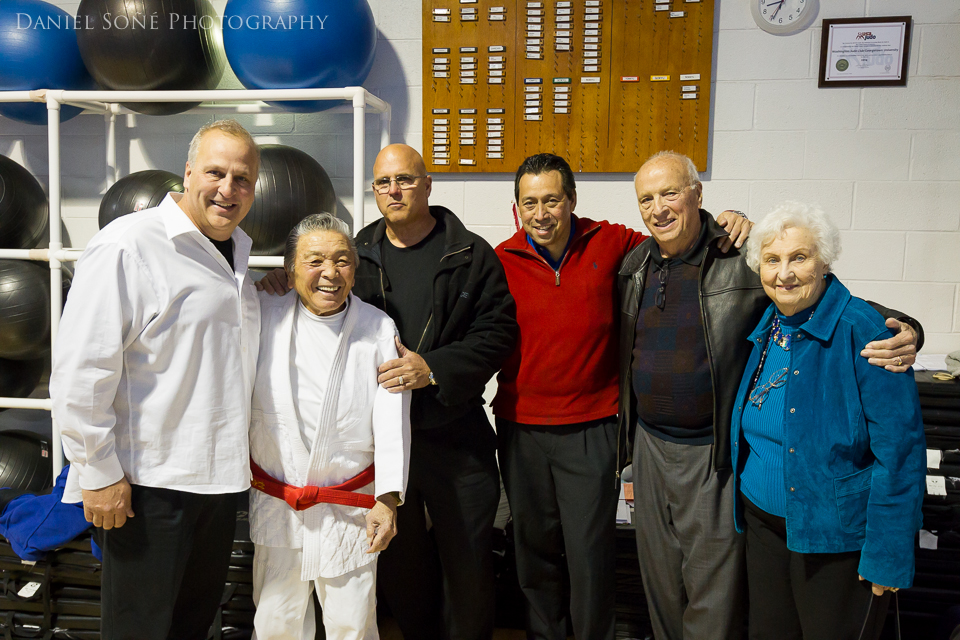
He resigned a potentially prestigious military career in order to be present and care for his family. It also — perhaps by another stroke of luck — avoid fighting in the Korean War, something a few of his friends weren’t able to do. Takemori returned to his life in California and continued practicing and competing in Judo.
Neither the Great Depression, Japanese Internment, or even World War II threw him the biggest — and most amazing — curveball of his life: the day he needed to change his judo. In 1953, Takemori was nearly a black belt with over 10 years of experience as well as many championship wins was told by his instructor, Kenzo Ueno, that he needed to change his “bad judo.”
“He says, ‘Jimmy you gotta change your judo. You’re not doing good judo,'” Takemori recalls. Thereafter, he focused on utilizing technique more than his farmer’s strength to throw his opponents, making hane-goshi his favorite technique, “I never liked seoinage. So I took the hane-goshi.”
Over the course of six months of hard training, he began to throw his opponents with an ease he never experienced before. “It was hard. I was doing 300 repetitions a day, but when I threw my opponents it felt like they were jumping for me,” he said. Even now, nearly 60 years later, he is astounded, “My God…”
At around the same time Takemori met his wife in their bowling league. Apparently, they pair were the best in their division. “I didn’t marry her for almost five years … She was great, but I was no damn good. See, I was messing around with all the Chinese and Caucasian girls,” he chuckled.
“But when I saw she wasn’t married after five years, I said, ‘Oh shit!’ … I’ve been married now since 1956,” he said.
He and his wife produced four daughters and, “they all became champions.” Fellow students of Takemori and other instructors describe them as “scary good.”
During his nearly 60 years of judo instruction, Takemori has taken his nose-to-the-grindstone approach and family-oriented mentality to his teaching and relationships with his students. No doubt his life experiences have shaped his [in]famous attitude and nearly merciless criticism of technique. While he is tough on instructor and student alike — he seems to make no distinction — one can see how much he cares about judo and his students’ development as a whole person, “Sometimes I’m too hard, but that’s the way I am.”
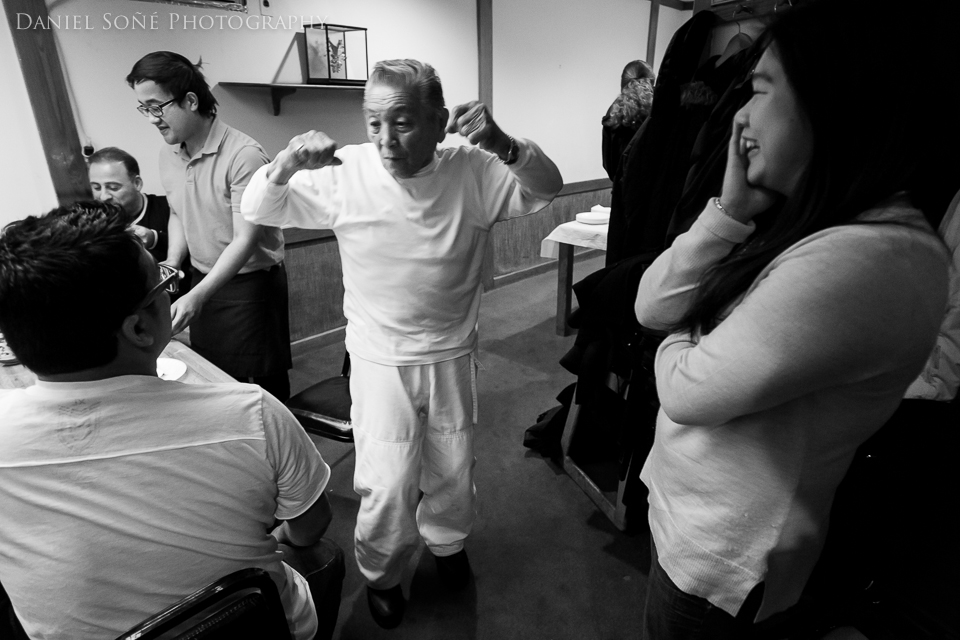
His toughness knows no bounds. The ladies get his swift discipline and sharp criticism as much as the men. No one escapes his sharp eye and equally sharp tongue. He focuses on the basics, sometimes making everyone from white belt to 5th degree black belt practice kuzushi or tai-sabaki for entire classes. However, no one can doubt that their judo dramatically improves from his nit-picking and the hard work. This man knows and loves his judo.
“Jigoro Kano said you have to help the person come up. The idea of Judo is to be a whole person. I want to put that through everybody,” he said.
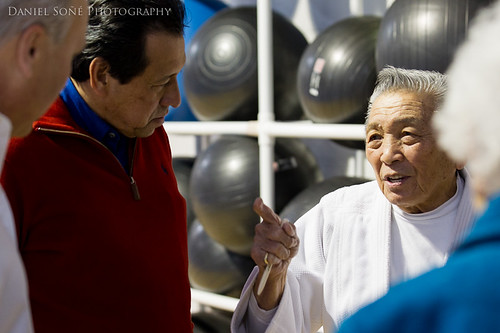
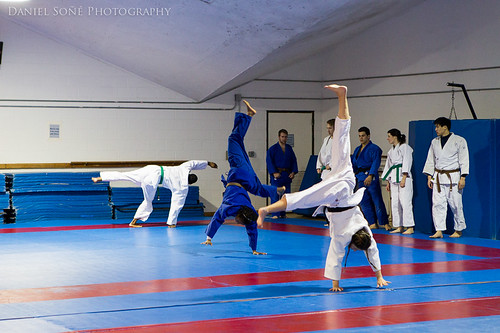
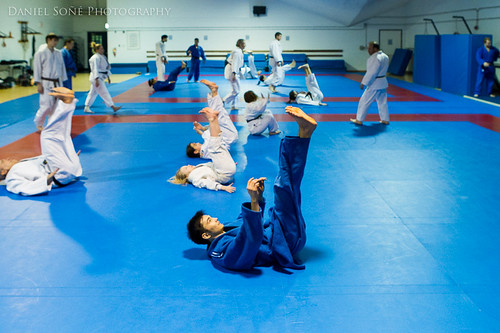

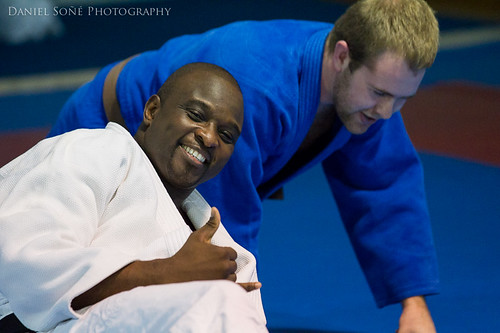
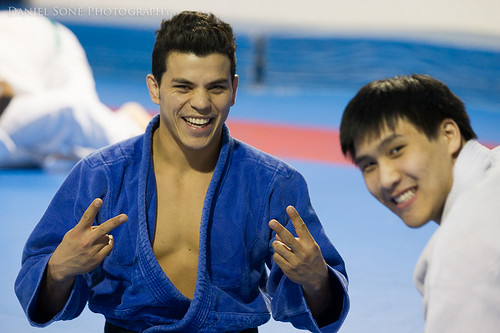
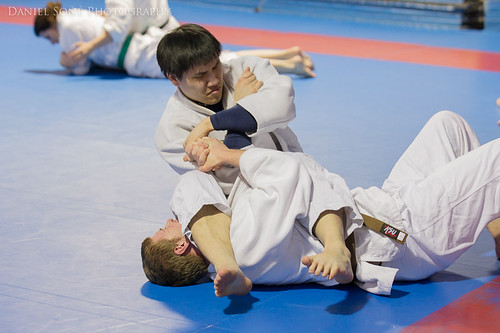
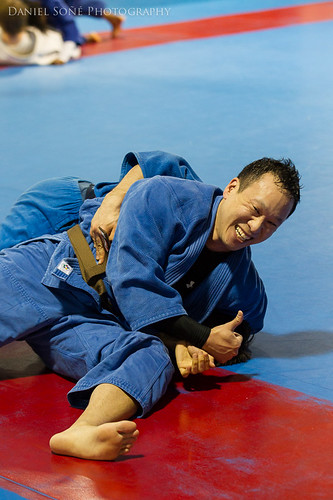
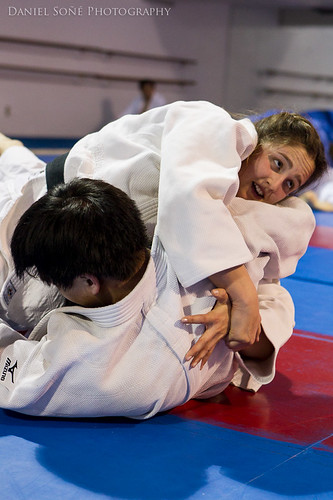
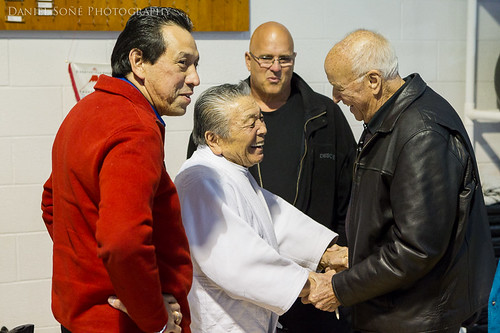
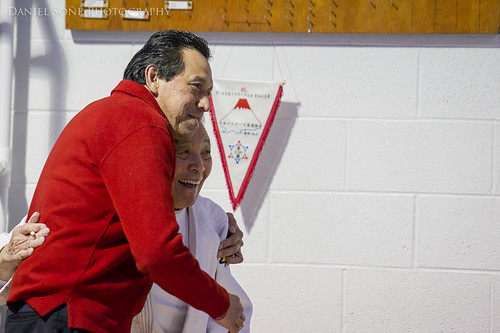
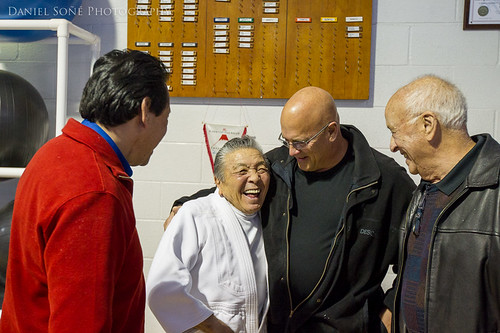
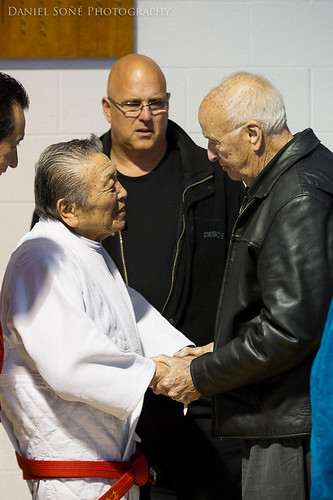
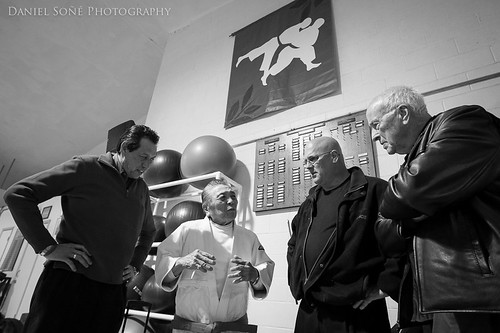
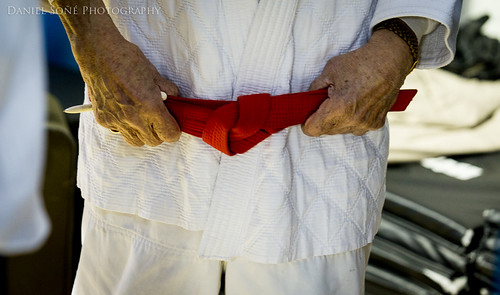
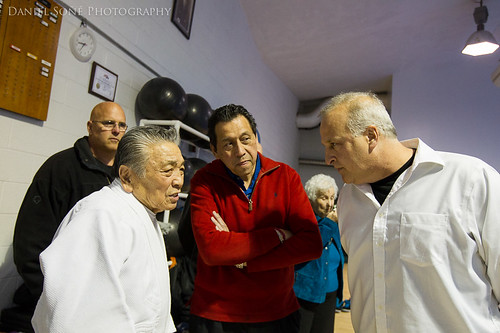
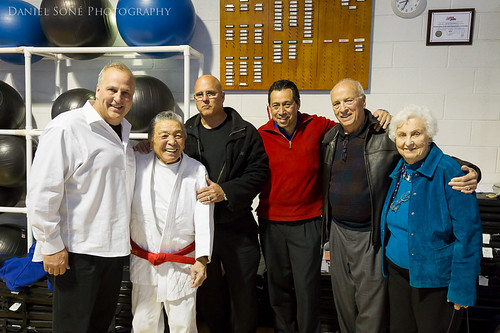
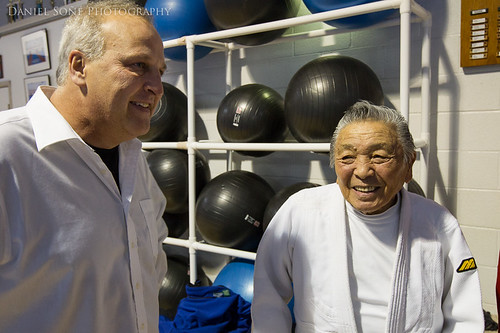
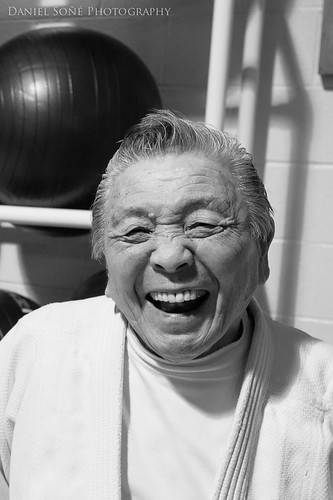
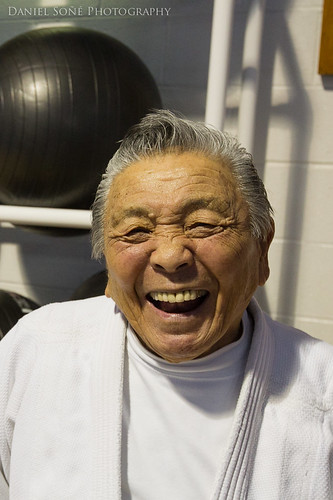

Came across this great article researching ideas for my mom’s 88th birthday,my mom is from Tokyo and I was born there, with my GI dad. I also wanted to add I was born Feb. 3